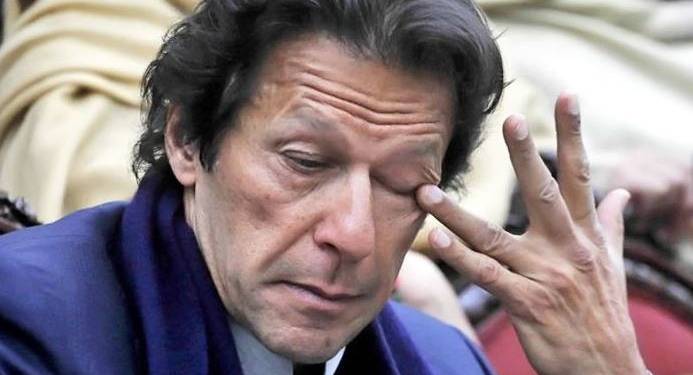Pakistan’s ambitions to foment unrest in Kashmir and to alter the status quo have suffered a yet another telling blow even as the Congressional Research Service (CRS) has stated that Pakistan’s leadership has “limited options” to respond to India’s move on Jammu and Kashmir given Islamabad’s “little credibility” on the issue that has been severely dented due to its long and infamous history of covertly supporting terror groups in the region.
This is the second report on Kashmir in the last six months by CRS, an independent research wing of the US Congress. The Think Tank prepares periodical reports on issues of interest for US lawmakers so that they can make informed decisions within the Congress.
The CRS has concluded that Pakistan’s ability to militarily alter the status quo has been reduced in recent years, which means that Pakistan will have to rely predominantly upon diplomatic measures.
In its report dated January 13, the CRS has stated that post-India’s August 5 move on Jammu & Kashmir last year, Pakistan “appeared diplomatically isolated”, with Turkey being the only country offering solid and explicit support to Pakistan.
What the CRS has stated is largely at variance with the kind of anti-India agenda that the local and international media outlets have been trying to pursue. The likes of CNN, Washington Post, NYT, etc have been continuously trying to pursue their vile anti-India rhetoric.
However, India has been successful in steering clear of such international media outlets, and it is Union External Affairs Minister, S. Jaishankar, who deserves credit for successfully bypassing the plot twisting narratives of such foreign media outlets.
Jaishankar has reached out to strategic Think Tanks in order to ensure that the ground realities on Jammu & Kashmir triumph over the false propaganda peddled by the usual suspects.
On his US visit last year, he met five of Washington DC’s most prestigious Think Tanks: Carnegie Endowment for International Peace, Atlantic Council, Center for Strategic and International Studies, The Brookings Institution, and the Heritage Foundation, in a span of 72 hours.
Jaishankar has been engaging with strategic Think Tanks which are more dedicated to facts, ground realities and the real truth, as opposed to the propagandist media outlets that are more or less agenda-oriented.
With the Congressional Research Service report on Jammu & Kashmir, India has clearly succeeded in putting the anti-India lobby on the backfoot.
Ever since India abrogated Article 370 last year, fake news, rumours and anti-India narratives have been flying thick and fast. However, with the recent CRS report, India has been able to ensure that the reality on the Kashmir issue is brought out.
By mentioning how Pakistan’s long history of covertly supporting terror groups has led to Islamabad losing the military option, the CRS has actually touched the core of the issue, which the agenda-oriented foreign media outlets continue to bypass.
Islamabad’s coffers are getting emptied in writing ineffective international obituaries on the Indian democracy. Imran Khan’s meeting with the NYT editorial board last year is an example of how deeply Pakistan is investing itself in pushing its vicious, anti-India narrative through such outlets.
India, on the other hand, is engaging with reputed Think Tanks who do not rely on fake narratives and agenda oriented Op-eds. These think tanks are more effective, accurate and reliable.
New Delhi’s lobbying is still at the nascent stage, but it is clearly far more effective. Islamabad’s pro-terror approach and unfavourable image, India’s strong and legitimate claims on Kashmir which are also internationally recognised are the reasons behind India’s effective lobbying.
Traditionally, New Delhi has lagged behind Islamabad when it comes to leveraging the power of global lobbying. Pakistan has traditionally engaged at several fronts in order to create favourable opinions.
However, S. Jaishankar’s outreach to American Think Tanks and New Delhi’s success on the Kashmir issue in terms of the latest the Congressional Research Service (CRS) report show that India has not actually started investing in global lobbying, but its lobbying might already have started yielding rich and encouraging results.




























